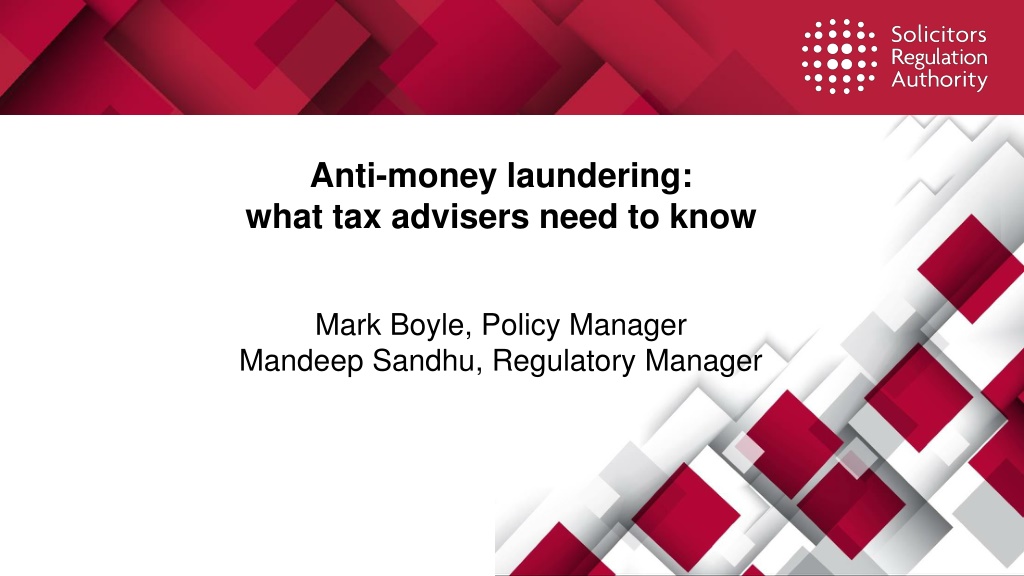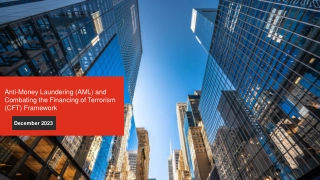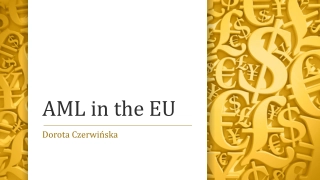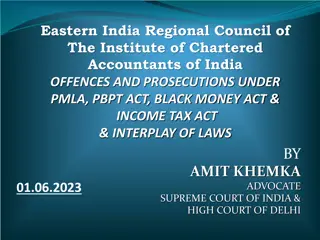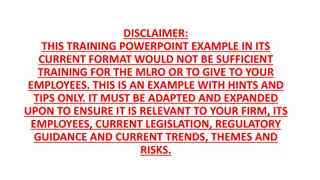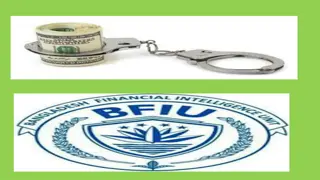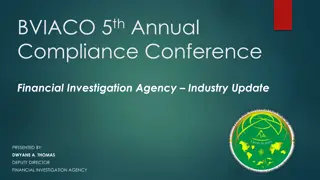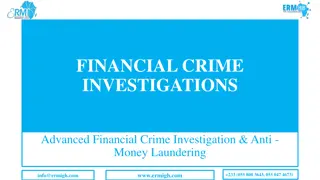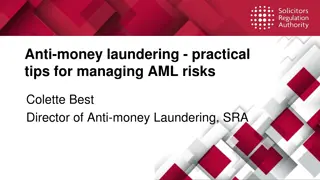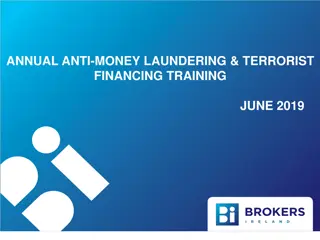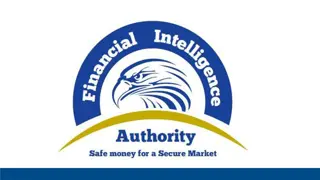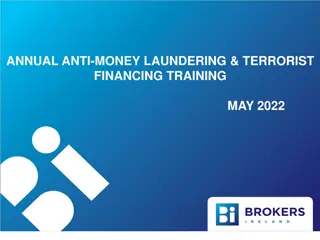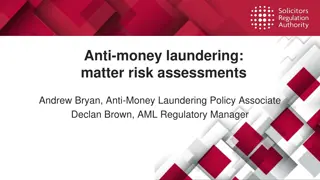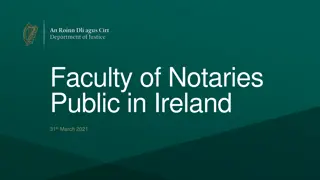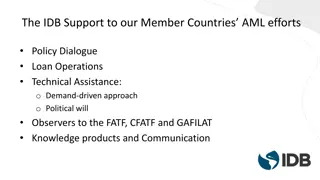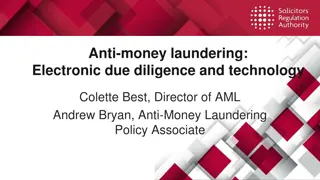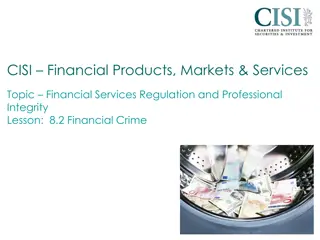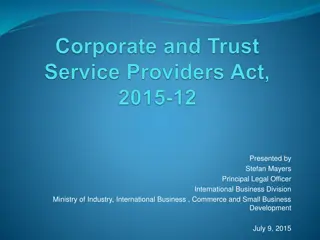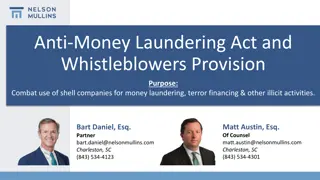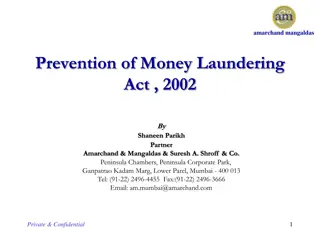Understanding Anti-Money Laundering Regulations for Tax Advisers
Tax advisers need to be aware of Anti-Money Laundering (AML) regulations to ensure compliance. The webinar content covers background information, thematic areas, and guidance for tax advisers, including identifying red flags and understanding the boundaries of their work. It discusses the impact of new regulations and the responsibility tax advisers have in providing advice with potential tax consequences. Policing the border of AML measures is crucial for mitigating risks in the tax advisory sector.
Download Presentation

Please find below an Image/Link to download the presentation.
The content on the website is provided AS IS for your information and personal use only. It may not be sold, licensed, or shared on other websites without obtaining consent from the author. Download presentation by click this link. If you encounter any issues during the download, it is possible that the publisher has removed the file from their server.
E N D
Presentation Transcript
Anti-money laundering: what tax advisers need to know Mark Boyle, Policy Manager Mandeep Sandhu, Regulatory Manager
Webinar content Background Guidance Tax thematic Areas of work Policing the border Reliance Red flags
Background 2020 New regulations (5MLD) Thematic 2021 Deadline was 10 Jan 2021 for new registrants
Tax Advisers the change Old A firm or sole practitioner who by way of business provides (advice about the tax affairs of other persons) Current Material aid, or assistance or advice, in connection with the tax affairs of other persons, whether provided directly or through a third party If your firm has not been approved for AML, but you meet the definition you need to tell us now (FA10)
Tax Advisers guidance Anything with a tax element, or tax consequence, runs the risk of being brought into scope More tailored the information is, the more likely it is to be advice. Material aid and assistance are also triggers Responsibility is yours to know when you are in scope, but there s no such thing a little bit of tax adviser work as far as the regulations is concerned
Tax Advisers guidance Policing the boundary Areas of work that could fall into scope Red flags Other resources
Tax thematic How is advice provided Areas of work that could fall in scope Policing the border Who provides the advice & reliance Red flags associated with Tax Adviser services
Areas of work that could fall in scope of the definition Standalone advice HMRC Investigations Litigation Corporate Ancillary to another service Already in scope Traditionally not in scope Private Client Family Employment Speak to individuals at your firm
Policing the border Apply AML measures on all matters? Or only those within scope of the regulations? The risks associated with this Update the AML polices, control and procedures at your firm
Reliance Regulation 11(d) extends to advice provided through a third party Who is providing the advice? Reliance Regulation 39. You must: immediately obtain from the third party all the information needed enter into arrangements which enables you to obtain CDD require the other person to retain copies of the data Obtain evidence to establish that the person relied upon, falls into the category of person under R39(3). You remain liable
Reg flags Tax evasion The Criminal Finance Act 2017 introduced an offence of the failure to prevent the facilitation of tax evasion Other reg flags
